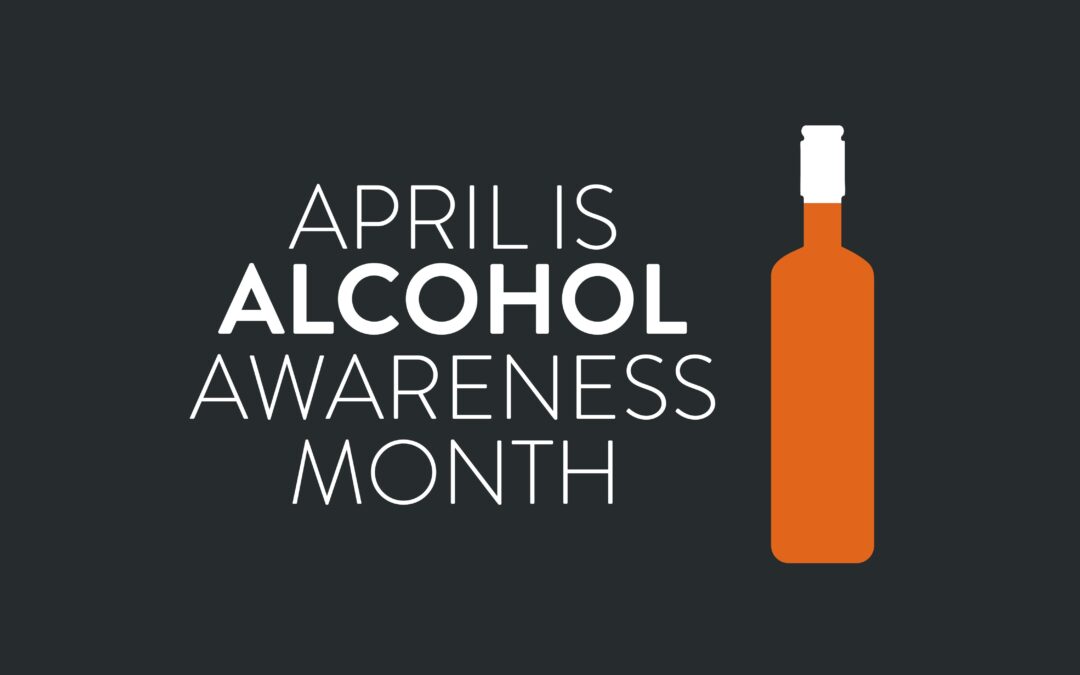Alcohol Awareness Month is an annual observance dedicated to raising awareness about the dangers of alcohol abuse and the importance of promoting sobriety and healthy living. With alcohol consumption being a widespread social norm, it’s crucial to shed light on the potential risks associated with excessive drinking and the profound impact it can have on individuals, families, and communities. In this blog post, we will explore the significance of Alcohol Awareness Month, the dangers of alcohol addiction, and the importance of getting sober for a healthier, happier life.
Understanding Alcohol Awareness Month:
Alcohol Awareness Month, observed every April, is a time for communities to come together to educate the public about the consequences of alcohol misuse and the benefits of making healthier choices.
- Education and Awareness:
- Alcohol Awareness Month aims to educate individuals about the risks associated with alcohol consumption, including physical health consequences, impaired judgment, and increased risk of accidents and injuries.
- Through awareness campaigns, educational events, and community outreach initiatives, organizations and advocates strive to raise awareness and encourage informed decision-making regarding alcohol use.
- Prevention and Intervention:
- Alcohol Awareness Month also emphasizes the importance of prevention and early intervention strategies to address alcohol-related issues before they escalate into more significant problems.
- By promoting healthy coping mechanisms, stress management techniques, and alternatives to alcohol use, communities can empower individuals to make positive choices and avoid the pitfalls of alcohol abuse.
- Support and Resources:
- Throughout Alcohol Awareness Month, individuals and families affected by alcohol addiction can access support services, resources, and treatment options to address their concerns and seek help for themselves or their loved ones.
- Community organizations, healthcare providers, and treatment centers offer a range of support services, including counseling, support groups, and addiction treatment programs, to assist individuals in their recovery journey.
The Dangers of Alcohol Addiction:
Alcohol addiction, also known as alcohol use disorder (AUD), is a chronic and progressive condition characterized by compulsive alcohol use, loss of control over drinking, and negative consequences on physical, mental, and social well-being.
- Physical Health Consequences:
- Excessive alcohol consumption can have severe consequences on physical health, including liver disease, cardiovascular problems, digestive disorders, and an increased risk of certain cancers.
- Chronic alcohol abuse can also lead to neurological impairments, cognitive deficits, and decreased immune function, further compromising overall health and well-being.
- Mental Health Effects:
- Alcohol addiction is often accompanied by co-occurring mental health disorders, such as depression, anxiety, bipolar disorder, and post-traumatic stress disorder (PTSD).
- Alcohol abuse can exacerbate symptoms of mental illness, impairing judgment, mood regulation, and coping mechanisms, and increasing the risk of suicide and self-harm.
- Social and Behavioral Impact:
- Alcohol addiction can have profound social and behavioral consequences, affecting relationships, employment, finances, and legal status.
- Individuals with alcohol use disorder may experience strained family dynamics, social isolation, job loss, financial instability, and legal problems due to alcohol-related behaviors, such as drunk driving or public intoxication.
The Importance of Getting Sober:
Despite the challenges of overcoming alcohol addiction, getting sober is a transformative and life-changing journey that offers countless benefits for physical, mental, and emotional well-being.
- Improved Physical Health:
- Sobriety allows individuals to reclaim their physical health and vitality, reducing the risk of alcohol-related diseases and improving overall well-being.
- With sobriety comes the opportunity to adopt healthier lifestyle habits, such as regular exercise, nutritious eating, and adequate sleep, further enhancing physical health and longevity.
- Enhanced Mental and Emotional Wellness:
- Sobriety offers individuals the chance to experience improved mental clarity, emotional stability, and a greater sense of self-awareness and self-esteem.
- With sobriety comes the opportunity to address underlying mental health issues, develop healthy coping mechanisms, and cultivate resilience and inner strength in the face of life’s challenges.
- Rebuilding Relationships and Restoring Purpose:
- Sobriety allows individuals to repair strained relationships, rebuild trust, and reconnect with loved ones in meaningful and authentic ways.
- With sobriety comes the opportunity to rediscover passions, pursue goals, and find purpose and fulfillment in life beyond alcohol.
Education, Support, and Resources:
Alcohol Awareness Month serves as a poignant reminder of the importance of promoting sobriety and raising awareness about the dangers of alcohol addiction. By educating individuals about the risks associated with excessive alcohol consumption and offering support and resources for those affected by alcohol addiction, communities can empower individuals to make healthier choices and live happier, more fulfilling lives. Through prevention, intervention, and support, we can work together to promote sobriety, save lives, and create a brighter future for individuals and communities affected by alcohol addiction.

